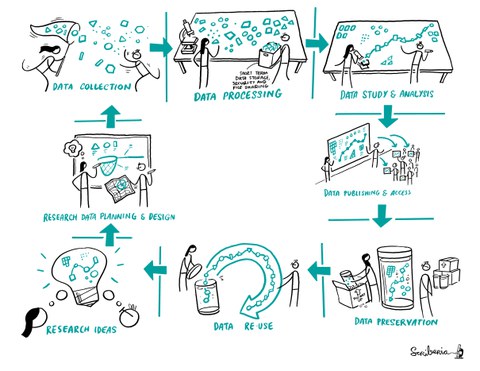Counselling & Training
Table of contents
Ombudspersons at TU Dresden
The Ombudspersons of TU Dresden are contact persons, advisors and mediators in all cases of suspected academic misconduct. All reports are treated confidentially.
Contact:
Prof. Dr. Alexander Kemnitz (Ombudsperson)
Prof. Dr. Mike O. Karl (Deputy Ombudsperson)
Liason officers for early-career researchers
The liason officers for early-career researchers are the first point of contact, especially for doctoral candidates, to mediate in problematic situations. The right to contact the Ombudsperson directly remains unaffected.
 © Nick Heidmann
© Nick Heidmann
Research Assistant
NameDr. rer. pol. Jeannette Stark
Send encrypted email via the SecureMail portal (for TUD external users only).
 © Klaus Gigga
© Klaus Gigga
Dean of Research
NameProf. Dr. Udo Buscher
Send encrypted email via the SecureMail portal (for TUD external users only).
Visitors' Adress:
Hülße-Bau, HÜL 502 (North wing) Helmholtzstraße 10
01069 Dresden
None
Office hours:
on appointment
Review body for good scientific practice
If there is a suspicion of academic misconduct, the Office for the Investigation of Good Scientific Practice offers to check theses (e.g. Bachelor's, Master's, diploma examinations) or graduations (doctorates, habilitations) for plagiarism using plagiarism detection software.
The test center continues to accept reports of suspected plagiarism confidentially and provides information on possible procedural steps.
Workshops and training on good scientific practice
Subject-specific training on GWP in departments and faculties
All five departments at TU Dresden have certified contact persons who offer subject-specific training on good scientific practice. For the School of Civil and Environmental Engineering, this is Dr. Carsten Brackhage, Head of the Office of Student Affairs.
Graduate Academy workshops and e-learning courses
The Graduate Academy offers various workshops, e-learning courses and advisory services on the topic of good scientific practice.
Advice on research data management
The Research Data Contact Point ( a network of SLUB and ZIH) supports all scientists at TU Dresden in overcoming the challenges that exist in dealing with research data.
Advice on questionable journals (predatory journals)
Predatory journals are supposedly scientific journals whose content cannot be considered scientifically validated. Publishers that publish these journals charge scientists for services that are not or insufficiently provided and promised quality control processes (e.g. peer review) are not provided or only appear to be provided.
For questions and uncertainties in dealing with questionable journals and publishers, there are competent contact persons at the SLUB .
The "Think Check Submit" page offers a helpful guide and checklist for recognizing untrustworthy publishers and journals.


